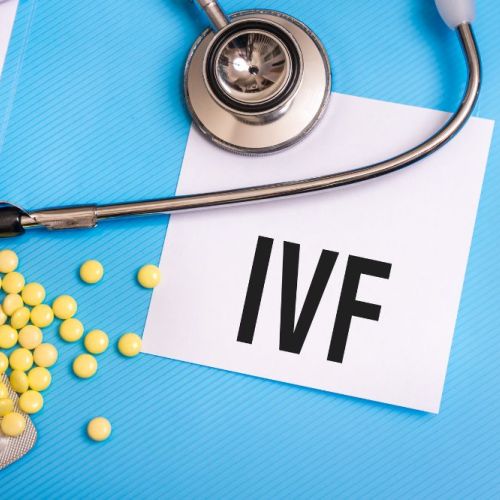Everything You Need to Know About Freezing Your Eggs

When you’re born, your ovaries contain right around three million eggs. Because some of those eggs reach a certain point of maturity, stop developing, and die off every day, you’re only left with about 300,000 eggs by the time you hit puberty.
Although a 90% reduction in egg supply may seem drastic, this prepubescent decline isn’t the decline you need to worry about.
It’s the progressive decline of egg quantity — and quality — in your reproductive years that you need to consider, especially if you’d don’t plan to start a family in your twenties, when your ovarian reserve (the number of eggs in your ovaries) is most favorable.
Whether you’ve been busy pursuing important life goals or you simply haven’t found the right partner yet, freezing your eggs gives you a way to pause your biological clock and preserve your fertility. Here’s how it works.
What is egg freezing?
Egg freezing, also known as egg cryopreservation or egg banking, is designed to take the age-related factor most likely to diminish your fertility — egg quantity and quality — out of the equation.
Pregnancy rates peak when you’re in your twenties, because that’s when your ovarian reserve is optimal. Those rates fall by nearly half once you reach your thirties, and plummet to a tiny fraction of what they once were by the time you’re in your forties.
By harvesting and preserving high-quality eggs when your ovarian reserve is relatively high, egg freezing safeguards your ability to have biological children when age-related reproductive changes may make it harder for you to become pregnant without assistance.
When should I consider freezing my eggs?
If you’re expecting a significant decline in fertility in the near future, freezing your eggs can provide you with a kind of insurance policy that basically holds your eggs — and your ability to have biological children — in a state of suspended animation.
But when, exactly, is the best time to consider freezing your eggs?
When you’re in your twenties, you still have several years before your fertility may decline significantly, so you may be advised to postpone egg freezing until you’re in your thirties. Once you reach your thirties, however, egg freezing can be an ideal solution if personal, economic, or professional circumstances are likely to keep you from starting a family in the foreseeable future.
To ensure high-quality eggs, it’s best to freeze them when you’re in your thirties — ideally, between the ages of 32 and 38. Preserving your eggs within this optimal window of time helps protect their integrity and ensure you have healthy eggs, which increases your chances of conception through in-vitro fertilization (IVF) when the time is right.
Egg freezing can also be an excellent solution for women younger than 30 who have a family history of premature ovarian failure, early menopause, or any other condition that may reduce their fertility potential more rapidly than normal.
How does egg freezing work?
Before you can freeze your eggs, you’ll have to undergo ovarian reserve testing to determine your current level of ovarian function. Using bloodwork and ultrasound imaging, ovarian reserve testing helps ensure you receive the best medication protocol to maximize the number of eggs your ovaries produce in a single cycle.
During the stimulation phase, which lasts 10-12 days, you self-administer an injectable hormonal medication to encourage your ovaries to develop multiple mature eggs. As soon as your bloodwork and ultrasound tests reveal that your estrogen levels and follicle measurements are just right, our specialists can retrieve your eggs in a quick, painless procedure.
Finally, your mature eggs are prepared for cryopreservation and stored in liquid nitrogen under strict laboratory conditions.
How long do frozen eggs last?
Because egg freezing is relatively new compared to sperm banking and embryo preservation, researchers don’t yet know exactly how long frozen eggs remain viable. What they do know, however, is that with proper extraction and storage, frozen eggs can remain viable for many months or even years, depending on your age. Younger women’s eggs tend to last longest.
Here at California Center for Reproductive Health, our affordable egg freezing program uses the most advanced cryopreservation protocols to achieve a high rate of success. If you’re in the greater Los Angeles area, and you’d like to learn more about egg freezing, give us a call today, or use our easy online tool to schedule a visit with one of our fertility specialists any time.
Eliran Mor, MD
Reproductive Endocrinologist located in Encino, Santa Monica, Valencia & West Hollywood, CA
FAQ
Reproductive endocrinology and Infertility is a sub-specialty of Obstetrics and Gynecology. In addition to managing medical and surgical treatment of disorders of the female reproductive tract, reproductive endocrinologist and infertility (REI) specialists undergo additional years of training to provide fertility treatments using assisted reproductive technology (ART) such as in vitro fertilization.
Reproductive endocrinologists receive board certification by the American Board of Obstetrics and Gynecology in both Obstetrics and Gynecology and Reproductive Endocrinology and Infertility.
In general, patients should consider consulting with an REI specialist after one year of trying unsuccessfully to achieve pregnancy. The chance of conceiving every month is around 20%, therefore after a full year of trying approximately 15% of couples will still not have achieved a pregnancy.
However, if a woman is over the age of 35 it would be reasonable to see a fertility specialist earlier, typically after 6 months of trying.
Other candidates to seek earlier treatment are women who have irregular menses, endometriosis, fibroids, polycystic ovary syndrome (PCOS), women who have had 2 or more miscarriages, or problems with the fallopian tubes (prior ectopic pregnancy).
Approximately 1/3 of the time cause for infertility is a female factor, 1/3 of the time a male factor, and the remaining 1/3 a couples’ factor.
At CCRH, we emphasize the importance of establishing a correct diagnosis. Both partners undergo a comprehensive evaluation including a medical history and physical exam.
Furthremore, the woman’s ovarian reserve is assessed with a pelvic ultrasound and a hormonal profile. A hysterosalpingogram (HSG) will confirm fallopian tube patency and the uterine cavity is free of intracavitary lesions. A semen analysis is also obtained to evaluate for concentration, motility, and morphology of the sperm.
Additional work up is then individualized to direct the best possible treatment option for each couple.
In vitro fertilization (IVF) is the process that involves fertilization of an egg outside of a woman’s body.
The process starts with fertility drugs prescribed to help stimulate egg development. In your natural cycle, your body is only able to grow one dominant egg, but with stimulation medication we can recruit multiple eggs to continue to grow. After about 8-10 days of stimulation, the eggs are surgically retrieved and then fertilized with sperm in a specialized laboratory. Fertilized eggs are then cultured under a strictly controlled environment within specialized incubators in the IVF laboratory for 3-5 days while they develop as embryos. Finally, embryos (or an embryo) are transferred into the uterine cavity for implantation.
Before deciding if IVF is the right choice, it’s important to sit down with an REI specialist to discuss available treatment options. For some people, other methods such as fertility drugs, intrauterine insemination (IUI) may be the best first choice treatment. At CCRH, we believe each individual couple is unique and not everyone needs IVF.
While not painful, the fertility medications may some side effects including headaches, hot flashes, mood swings, and bloating. The injection sites may also bruise.
Unfortunately, no. Many people think once they start IVF it’s a matter of time that they will be pregnant and have a baby. But according to national statistics per the Society of Assisted Reproduction (SART), on average 40% of assisted reproduction cycles achieve live births in women under age 35. The chances of success then continue to decrease with advancing age.
At CCRH, we employ only evidence-based interventions to ensure patient safety and optimal outcome. While we cannot guarantee a baby, we guarantee that you will receive the best, most advanced, personalized care to help you maximize your chance of a baby.
The average IVF success rate (success measured in live birth rate) using one’s own eggs begins to drop around age 35 and then rapidly after age 40. This is due to the decline in egg quantity and egg quality as a woman ages.
Our clinic’s success rate consistently beats the national average year after year.
Individual insurance plans often do not have any coverage for infertility treatments. If you have a group plan, you can call members services to see if they have coverage for infertility (including consultation/workup and IVF).
After your consultation with our REI specialist, one of our dedicated account managers with sit with you to go over the cost of treatment.




